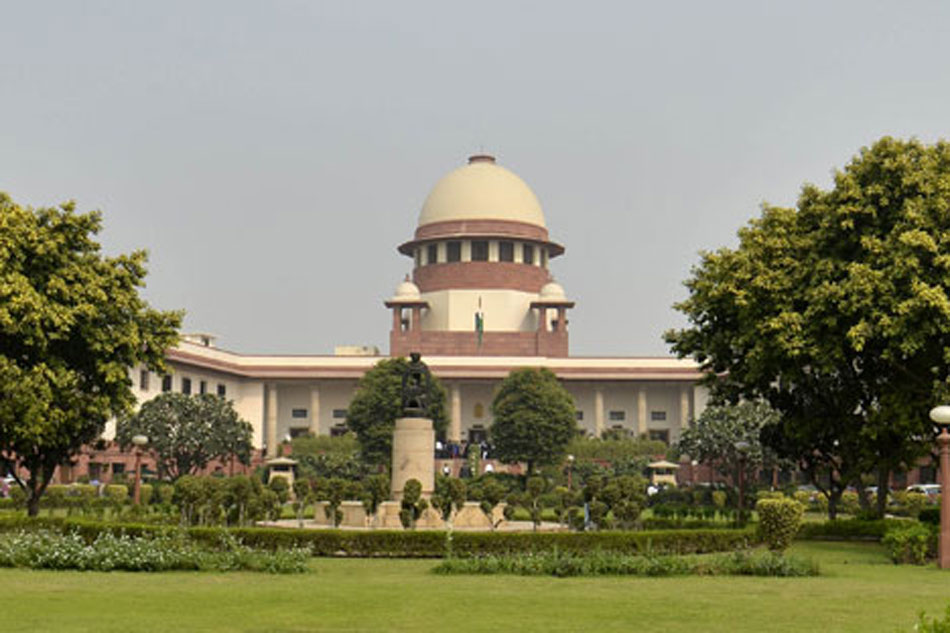The separate decisions of the Supreme Court collegium to send two judges, whose transfers have generated controversy, to courts in the Northeast have raised the question whether an impression is being created that the region is being used as a punishment terrain.
Madras High Court Chief Justice Vijaya Tahilramani has been transferred to Meghalaya High Court, prompting her to resign and fuelling suggestions that the CBI is keen to look into the purchase of two flats in the southern state.
Justice Akil Kureshi, a senior judge of Bombay High Court, has been shifted to Tripura High Court after he was earmarked for Madhya Pradesh High Court as its chief justice. The collegium changed the destination after the Narendra Modi government disagreed with the original proposal.
No wrongdoing by either of the two judges — one judge had upheld jail sentences in a case dealing with a horrific Gujarat rape and the other had sent Amit Shah, now the BJP chief and Union home minister, to custody — has been mentioned formally or established.
Yet, the transfers and the subsequent controversy have created a perception that they were somehow not suited to helm courts with a large number of judges.
Meghalaya High Court has three judges and Tripura High Court has a sanctioned strength of four judges. To put it in perspective, Madhya Pradesh High Court, where the collegium had wanted to post Justice Kureshi initially, has 40 judges.
Since both judges were told to go to the Northeast, an unintended consequence has been the question whether an unflattering picture is being portrayed about the region, which has had nothing to do with either the transfers or the controversy they have generated.
The question has come up at a time when the first judge from the Northeast is presiding over the Supreme Court. Chief Justice of India Ranjan Gogoi hails from Assam.
Although no official reasons have been cited by the collegium, highly placed sources told The Telegraph that the decisions “had to be taken in the larger interest of the judiciary and if we disclose the reasons in public, it would become impossible for some of the transferred judges to function”.
While Justice Tahilramani’s resignation has been accepted by the President, there is no word yet from the Union government on the collegium’s decision on September 5 to transfer Justice Kureshi to Tripura High Court.
The controversy has stirred up another question: if at all any allegation has been levelled against any judge, why are transfers being resorted to instead of the sole avenue of impeachment.
Ashok Bhan, a senior Supreme Court advocate, told this newspaper that all high courts — irrespective of their location, number of judges or cases dealt with — enjoy uniform stature under the Constitution.
“The collegium is obliged to treat the Northeast’s high courts on a par with the other high courts. The Northeast also requires good judges, and no judge should be posted to the Northeast only for the purpose of punishment because that demeans the stature of that high court,” Bhan said.
However, sources close to the Chief Justice of India said judges cannot protest if they are posted to the Northeast. “There may be reasons…. One cannot object to it as it is the prerogative of the collegium,” the source said.
The source said that at the time of appointment, a judge gives an undertaking that he or she can be transferred to any part of the country.
Dushayant Dave, senior advocate and former Supreme Court Bar Association (SCBA) president, told The Telegraph in response to a question: “When it comes to Justice Kureshi, my view is that if Justice Kureshi is fit to be the chief justice of Tripura High Court, then he is fit to be chief justice of Madhya Pradesh High Court as well.”
He added: “There is no justification for changing the decision which the collegium had taken earlier to appoint him as chief justice of Madhya Pradesh High Court. One can only speculate that the collegium did it under pressure from the government….”
On a report that the CJI had sanctioned a CBI inquiry linked to Justice Tahilramani, Dave said: “But just one week back, the collegium had transferred her as chief justice of Meghalaya High Court. Now if she was fit enough to be transferred as chief justice of Meghalya High Court and if she had accepted the transfer, would the CBI inquiry have been sanctioned?”
A former Chief Justice of India told The Telegraph he did not understand why the CBI needed a sanction.
“The shield of immunity against the prosecution of a judge is available only during his or her tenure and not thereafter, as held in the Justice K. Veeraswami case in 1991,” the former Chief Justice of India, who did not want to be named in this article, said.
Although this newspaper made repeated attempts to reach Justice Tahilramani on her mobile, the calls went unanswered.
Sources privy to the judge said Justice Tahilramani did not want to enter into any controversy at this stage and would deal with the issue appropriately if and when the situation warranted.
Dave said: “I don’t think you should send to the Northeast only judges who are being punished.... I think the northeastern states need to be dealt with in a very sensitive manner. Otherwise, we will have a serious problem of the failure of the rule of law.”

